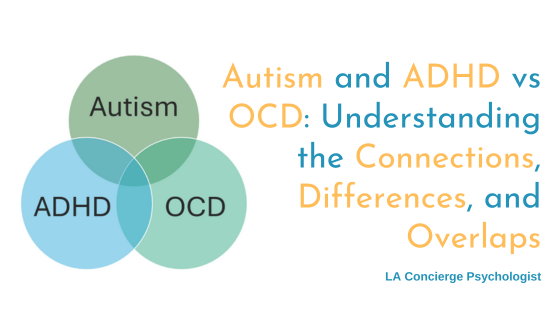Is your partner’s constant need for attention and support at odds with your autism? They might comment that you seem cold, distant, or neglectful—despite your attempts to please them. You worry they’re asking too much of you—forcing you to choose between their wellbeing and yours.
Successful romantic relationships require compromise and balance. There will be times when the situation calls for you to go outside your comfort zone to be there for your partner. Meanwhile, your partner will need to accept that you have your own needs. Here’s how to avoid autistic burnout in your relationship while making an effort to support your partner:
1. Ration your internal resources
Imagine that your partner has invited you to a weekly work happy hour, but you aren’t interested in going. Rather than forcing yourself to go every single week and resenting your partner for it, you could compromise by attending only once per month. Alternately, you could decline the happy hour invitations altogether and agree to go to some other event that is even more important to your partner, such as their company holiday party or an upcoming family get-together. Prioritizing certain occasions while declining others will allow you to effectively ration your energy reserves throughout the year.
You should also take care to avoid depleting your internal resources on any given day. For example, you might take the day off from work before attending your partner’s birthday celebration. These kinds of intentional efforts to better manage your energy will protect your mental health and prevent your autism needs from becoming a point of contention in your relationship.
2. Safeguard your alone time
It is probably important to your partner to be able to depend on you. After all, mutual support is one of the most valuable benefits a romantic relationship can offer. You and your partner should strive to support each other when times get tough and act as a buffer against the world.
That said, it’s not necessary or even healthy for you to be 100% available to your partner all the time—especially if they tend to talk or complain excessively. If you never get the opportunity to have a moment’s peace, you may begin to resent your partner and draw away from them—not a good situation for either of you.
Instead, we recommend you reserve regular alone time during which you are not to be disturbed. For example, you might create a boundary with your partner that they are not to shower you with questions right when you walk in the door from work. If they forget this boundary, you could say something like, “I’m looking forward to hearing about your day, but I need some time to decompress from work first. Give me thirty minutes to change my clothes, grab a snack, and relax a little and then we can talk.”
While your partner might initially object to the idea of your being unavailable, you can soften the blow by reminding them how much they mean to you and phrasing your request in terms of your needs (not their personality or perceived flaws). We’ve often encourage clients to talk their partners about wanting to be the best/most attentive/(insert positive quality here) partner and needing the alone time in order to show up as that person for them.
3. Honor your partner without sacrificing your values
You might occasionally encounter situations that pit your personal values against your partner’s. If you neglect your partner’s ideals, they may become sad, angry, and resentful. If you force yourself to ignore your own, you may feel the same way. Instead, we recommend you try to find a middle path.
For example, perhaps complete honesty is one of your values. You’re on a double date one night, and someone asks you how you and your partner, Ann, have been doing. Wanting to give an honest answer, you say, “Actually, Ann has been really depressed lately. She was so sad tonight that she didn’t want to come.” Ann, who values personal privacy in social situations, is extremely hurt and offended when you expose her mental health struggles at the dinner table.
A better approach would have been to avoid volunteering any personal information about Ann. For example, you could avoid talking about Ann and talk about yourself, instead: “I’ve been enjoying a new project I’m working on. Let me tell you about it.” Or, you could remain silent and look toward Ann, giving her the opportunity to share as much or as little about herself as she chooses. You’re not being dishonest—you’re simply being thoughtful about the information you choose to share.
4. Find effortless ways of demonstrating your support
Do you sometimes worry that you’re going to say the wrong thing to your partner? Perhaps you struggle to come up with valuable contributions quickly during conversations, so you end up blurting things out. If this situation sounds familiar, you should know that most neurotypical people don’t expect well-thought-out replies during casual conversations. More than anything else, they are looking for validation and attention.
You can often demonstrate these things without words. For example, you could support your partner during difficult times by placing a hand on their shoulder, handing them a box of tissues, or putting a blanket around their shoulders. Similarly, you could bring your partner their favorite drink or snack as a peace offering after an argument between you. Non-verbal expressions like these might not add much to the conversation, but they communicate the essential thing: your love.
5. Let your partner take the lead in casual conversations
Given the proper encouragement, most neurotypical people are happy to do most of the talking in an autistic-allistic relationship—at least when it comes to casual conversation. For example, imagine that you and your partner are discussing the Thanksgiving dinner you are hosting next week. You’re driving at the time and need to focus on that, so you encourage your partner to carry the conversation.
Your partner asks whether you think ham or turkey should be served, and instead of trying to figure out the answer, you bounce the ball back into their court: “Hmm, interesting question. What are you thinking?” As she explains her thought process to you, she will likely come up with an answer on her own, sparing you the effort.
Later in the conversation, she complains that uncle Ted will probably spend the whole night loudly proclaiming his political views. Rather than exert the energy and attention needed to come up with a solution to this problem, you could simply acknowledge and validate it: “Yeah, it’s super annoying, isn’t it?” Alternately, you could invite your partner to brainstorm a solution: “I wish there were a way to avoid that. Do you have any ideas?” Even though you aren’t contributing any new information, your partner will appreciate knowing that you’re listening and engaging with the conversation.
Cultivate a Healthy Relationship
Being in a relationship can sometimes feel exhausting. At times, you may even wonder if it’s worth all the effort. Instead of avoiding relationships, get support from an adult autism specialist. We can help you figure out a healthy, balanced way to be in a mixed neurotype relationship. Send us a message or book a free 20 minute consultation call with Dr. Barajas or Dr. Goldman.



